Did you ever imagine that something as simple as decorated cookies - a straightforward mixture of sugar, flour, and a few other things - could connect us so powerfully? When I started this site, I certainly had hopes of making cookie friends outside of the United States, but never in the world did I think we’d have active membership in nearly 30 different countries!
Day in and day out, no matter where we live, we express our individual and cultural similarities and differences through the cookies we craft. Though I don’t speak Spanish or Italian or any other language for that matter, and you may not know English, cookies are our universal language – and this, to me, is a wonderful thing!
The connective power of cookies was never more evident to me than when I first “met” this month’s featured cookier, MariËlle de Vroome, founder and owner of De Koekenbakkers. “Met” is in quotation marks, because, you see, we’ve never really met – it just feels that way. When I first stumbled upon MariËlle’s signature gingerbread houses on Facebook, I knew I had found my kindred cookie spirit. Wow, could it be? Yes, here we were, two people on opposite sides of the globe, sharing a crazy fascination with 3-D cookies!
I’m not exactly sure what happened next, but we exchanged some emails, and then the loveliest of lovely gestures arrived from the Netherlands – a surprise package in the mail. In it was the most marvelous cookie book, MariËlle’s Het Koekboek, chock-a-block full of more 3-D cookies. I couldn’t read a stitch of it, but it didn’t matter. Each and every gorgeous picture spoke a thousand words to me. For all intents and purposes, I was a stranger, yet MariËlle had opened up her world to me.
Regrettably, way too much time has passed since this last “meeting,” so MariËlle and I have some serious catching up to do. But stick around – you’ll definitely want to eavesdrop!
![]()
JMU: Hi, MariËlle. Truly, I will never forget your generosity. Your book is so charming, and those cookies you sent along with it . . . let’s just say, they didn’t last very long in our house! Thanks again!
It seems that in addition to our mutual fascination with 3-D cookies, we also had a similar (albeit circuitous) start in the food world. I read on your site that you started baking pies at the age of eight alongside your mom, but it wasn’t until after going to business school that you launched into the food profession, first as a caterer.
So, would you say it was your mom who inspired you to start a culinary career? Or did other people and factors come into play?
![]()
MdV: My mother owned her own business when I grew up, and the decision to be independent and become an entrepreneur was certainly inspired by her. When people ask me how I started my cookie business, I always answer that it must have been fate. Five years ago I didn’t even know about the existence of decorated cakes and cookies (this concept is very new to the Netherlands), and I had never baked anything other than an apple pie or a chocolate cake. If someone had told me then that I would own a cookie business and be a full-time cookie decorator a few years later, I would have told them they were mad.
![]()
JMU: Did you go to business school with the specific intent of later launching a catering business? If so, why not go to culinary school instead, or in addition to business school?
![]()
MdV: After finishing high school, I didn't have a clear goal but I knew I wanted to go to university like the rest of my friends. I picked business (marketing) because it is very general. This way I could decide which way I wanted to go later in life. If I had known then what I know now (how much I really love baking and teaching and being creative), I probably would have made another choice.
![]()
JMU: In your opinion, what’s the best training one can get to prepare oneself for opening a sweets business?
![]()
MdV: I think opening a sweets business is just like starting any other business. Just being able to make beautiful cookies (or cakes or cupcakes) isn’t enough to become a successful entrepreneur. Learning the basics about how to run a business (any kind of business) is very important. You have to know a little bit about everything (bookkeeping, calculating costs and prices, marketing, customer service, the taxes and laws in your country, etc.) especially when you own a small business.
![]()
JMU: And why did you move from full-service catering into a sweets business – De Koekenbakkers, that is - in 2010?
![]()
MdV: Working in the catering industry can be very demanding and stressful. In 2008, my husband and I were expecting our first child, and we realized catering was not what we wanted to do with the rest of our lives. We decided to sell our business and start over. We took some time off, traveled across Europe for a while, and had our first child, and then one day I just stumbled upon a website with decorated cakes and cupcakes and was very intrigued.
These things were completely new in the Netherlands, and I thought it would be great to be able to make something like them and start a new business. After trying a few cakes, I discovered decorated cookies with royal icing, and they really were love at first sight for me! Cookies are very practical, versatile, and easy to ship by mail, and they were perfect for the kind of business I wanted to start. I ordered some books on Amazon (there were no Dutch books available) and started to practice cookie decorating. I loved it so much that I very soon decided to officially start a cookie business.
![]()
JMU: Before we dive into your cookie business in more detail, one thing about it has left me scratching my head. I bet you can explain! I thought “koekje” meant “cookie” in Dutch, and “koeken” meant “cake.” (Or so said Google Translate, anyway!) It doesn't sound as if you started De Koekenbakkers with the intent to make only cakes, so what was the motivation behind your business name?
![]()
MdV: The Dutch translation of "De Koekenbakkers" is "the cookie bakers." ("koek" = cookie and "koeken" = cookies). The translation of cake is "taart" in Dutch, so Google is wrong in this case. [EDITOR'S NOTE: See, I told you I don't know languages!]
But calling someone a "koekenbakker" has a double meaning in Dutch. It’s kind of hard to explain/translate, but it’s like a sweet way to tell someone they made a mess of things. It’s a funny swear word, mostly used by kids. From the start, it was always my intention to specialize in decorated cookies. I also like making cakes and cupcakes, but when I do, I decorate them with cookies. (I don’t really like the taste of fondant.)
![]()
JMU: I’m curious, how is De Koekenbakkers operated? Do you own a commercial kitchen and a physical brick-and-mortar shop? Or do you operate somewhere else and sell strictly online? Why have you chosen this approach?
![]()
MdV: When I started De Koekenbakkers, I wanted to be able to work from home so I could be around for my children, but I also really wanted to separate our family home from my workspace. Luckily, we were able to build a bakery/atelier/workshop space/studio (my husband is a photographer) behind our house. It is not a retail shop; we only sell online.
![]()
JMU: From the looks of your site, De Koekenbakkers is an empire! I guess that’s why you’ve been dubbed The Cookie Queen of the Netherlands! You make cookies, cookie cakes, and the cutest of cookie calling cards, like the one pictured above. But you also design dessert tables (see below), teach cookie decorating classes, write, and contribute extensively to magazines. Phew – that’s quite a lot for one person to do! Can you tell our readers how you typically spend your days, and which, if any, of these things occupies the bulk of your time year-round?
![]()
MdV: Because I am very busy, I often wonder if I should make a choice and stop trying to do everything, but I really love the combination of baking, decorating, teaching, and creating new cookie designs. From Monday to Friday, I start each morning with answering emails, and then I usually spend the rest of the day decorating cookie orders for our customers. In the evenings, I squeeze in making cookies and tutorials for magazines, designing new cookie for my cookie classes, some bookkeeping, and answering more emails. Every Saturday I teach a cookie decorating class, and Sundays are reserved for my family.
![]()
JMU: And one last business question before we move onto other topics . . . what’s the best and biggest piece of advice you’d give Cookie Connection readers who aspire to launch their own cookie businesses?
![]()
MdV: The three Ps: Practice, Patience, and Passion.
![]()
JMU: OK, onto the really yummy cookie stuff! You clearly love 3-D cookies, and gingerbread houses in particular. What’s behind this fascination?
![]()
MdV: I love fairy tales and I feel I can create my own little fairy tale world out of cookies and royal icing in 3-D cookie scenes and gingerbread houses.
![]()
JMU: Your cookie house pieces always look so perfectly linear. What’s your trick to getting such precise shapes with so little spreading? Is there some form of magic to your recipe?! Fill us in, please!
![]()
MdV: I receive a lot of emails with the same question. Of course, my favorite recipes are in my cookie book, but since it is not translated in English, I decided to start a blog in English just to put my favorite cookie recipe on it. My trick is using pastry flour and confectioner's sugar for less spreading, and I don’t use any baking powder/soda at all. Also making sure the dough is cold when it goes into the oven helps. You can find the complete recipe here.
![]()
JMU: Are there particular cookie traditions and techniques that are unique to the Netherlands, or Europe, that you think the world at large needs to see more of, or know more about? What are they and what makes them so uniquely special?
![]()
MdV: Cake and cookie decorating are completely new to the Netherlands. I think they started to get popular about five years ago, and only in the last year or two could you find cookie cutters and some cake decorating materials in stores and super markets. A typical birthday cake in the Netherlands is an apple pie with candles on it. In the Netherlands, we do have some decoration on our traditional speculaas cookies. These cookies are decorated using traditional wooden cookie stamps. They have a similar tradition in the south of Germany and Austria called spingerle cookies. The recipe used for springerle is completely different than that used for speculaas, but springerle also include the use of gorgeous and very detailed wooden molds. When I visited Prague in the Czech Republic a few years ago, I saw the most wonderful decorated lebkuchen there. It’s like gingerbread or honey cookies with very beautiful traditional (mostly white) royal icing decorations.
![]()
JMU: Do you think that Europeans have similar or different cookie preferences (flavor, texture, or design) than those of us in the United States or elsewhere in the world? Please elaborate – I’m curious to hear what you think from your geographical vantage point!
![]()
MdV: I only had the opportunity to taste a decorated sugar cookie from the USA once when I entered in a cookie swap a few years ago, so I am certainly not an expert on the subject. But I do think there are some differences. When I started decorating cookies, I tried a lot of sugar cookie recipes from the books I ordered in the USA and soon found out they were not very popular around here. We like our cookies to be crunchy and crispy and not too sweet. Soft cookies are assumed to be old cookies.
![]()
![]()
![]()
MdV: I think the popularity of cake and cookie decorating is still growing in Europe but maybe not as fast as a few years ago. I think decorated cakes and cookies are here to stay and will be incorporated more into our everyday lives in the future, for example with decorated birthday cakes, wedding cakes, birthday treats, etc.
At De Koekenbakkers, we are expanding very quickly right now, and we sometimes have a hard time keeping up. In the last year we received more and more large business-to-business orders, and I think they will grow even further. Custom cookies are a great marketing tool. Personally, I would prefer not to become a large "cookie factory" and have to spend my days as a manager. I’d rather stay small and specialize in unique and high quality decorated cookies. I have found my passion. I am very happy when I am baking and decorating cookies or have the opportunity to teach others how, and I hope I can stay doing this for the rest of my life! [EDITOR'S NOTE: We hope so too!]
Want to learn more about MariËlle and De Koekenbakkers? Please check out her work online, on her site or Facebook.
Cookie Photo Credits: Copyright De Koekenbakkers

Cookier Close-ups is the place on Cookie Connection where we celebrate the change-makers of the cookie decorating world. Whether forging new enterprises, inventing novel decorating techniques, or consistently charming us with their cookie decorating prowess, each of our featured thought leaders has redefined in his/her distinctive way how we interact, create, or otherwise do business here in cookie space!
If there are other cookiers you'd really like to get to know, please post requests in this forum. We'll do our best to round them up for an upcoming Cookier Close-up! Thanks!

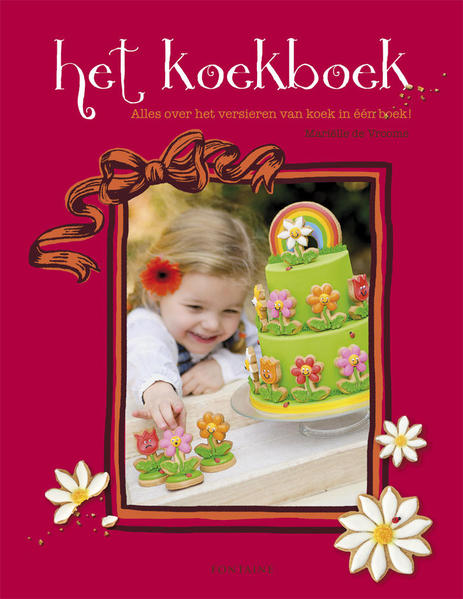
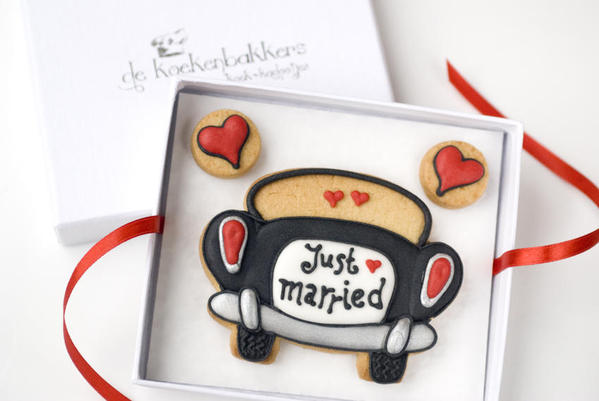
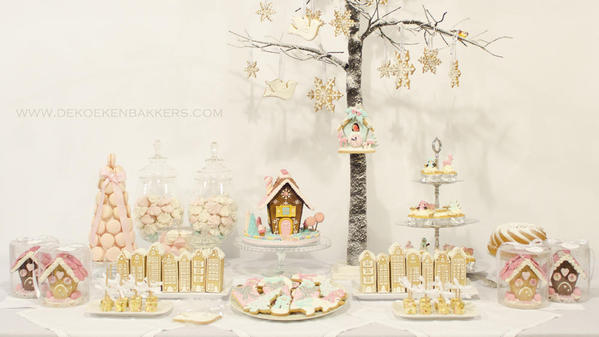
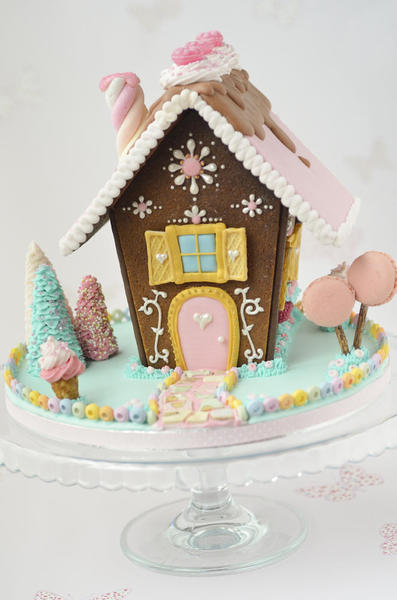
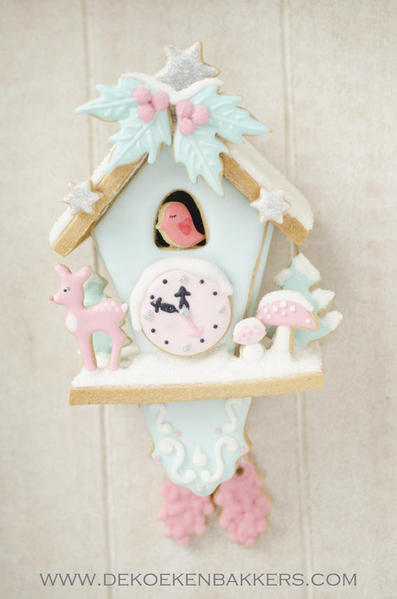
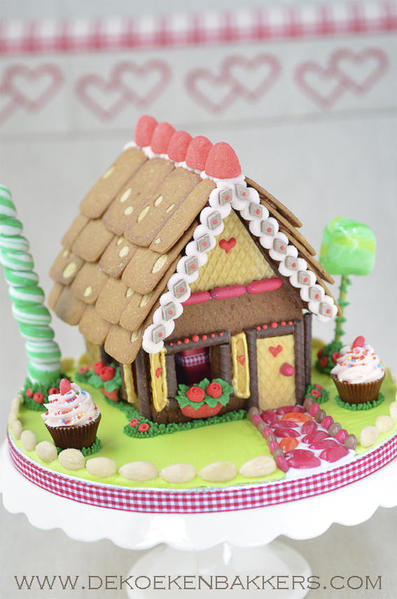
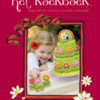
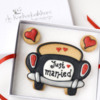
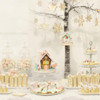
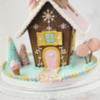
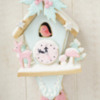
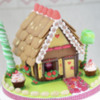
Comments (8)